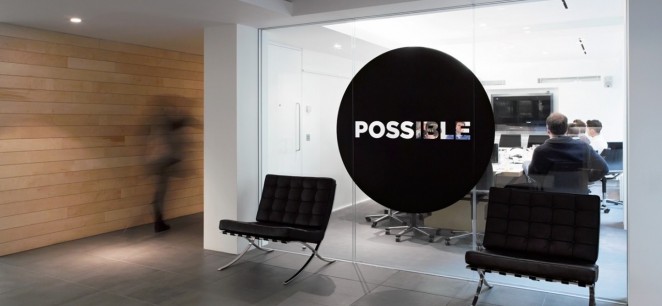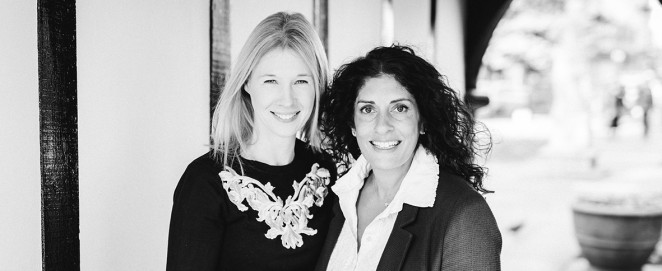Mergers are funny old things. More often than not, they're lambasted as job-eating, austerity driven moves that are more about branding than innovation, and result in work that lacks personality and clients feeling like they've been thrown from pillar to post. I, however, don't see it that way. Not all the time anyway.
The Wunderman/Possible merger that was announced last week, for example, seems, to my eyes, like a logical move to consolidate WPP's digital assets into one location with a more defined vision. The fact is, both agencies, whilst possessing their own quirks, (Wunderman with their data, creative and tech and Possible with their commerce, content and customer experience) offered a vaguely similar service, so it made a great deal of sense from both a creative and business perspective, to fold the smaller agency into the larger one and create an agency that should hit that sweet spot between data and creativity.

Consolidation has become something of a trend at WPP of late. The company announced plans last month to merge ad-buying agencies MEC and Maxus to cut costs and reinvest some of the savings into digital ad shop Essence. Neo@Ogilvy was also folded into Mindshare just a few weeks ago. Indeed, Possible itself was initially the result of merging several of WPP’s digital agencies in 2011 to create a bigger player on the digital ad stage. WPP chief Martin Sorrell often likes to talk about “horizontality,” which effectively means the group can tap into the expertise of a range of its agencies to provide the right services for clients. Integrating two agencies like these looks to me like a classic case of this horizontality put into action. Sorrell has also acknowledged the structural challenges facing media agencies, as it becomes possible for big advertisers to operate without them, which is probably what has catalysed his fondness for “horizontal thinking.”
The fact is that technology has caused a major disruption in both the media and creative agencies, and this disruption has led to the mega-merger climate we currently find ourselves in as the big holding companies (Publicis are at it too, lest we forget, with the whole Publicis One endeavour) hurry to fit all their eggs in a dwindling number of baskets in order to offer a simpler service to their client. So the Wunderman/Possible merger should be smart move for WPP as long as they remember that staff should always be their primary focus, as if the staff (particularly senior executives) can provide direction, stability and support through a merger, it's far more likely to be a success.

Of course, not everyone shares my optimism, as the assorted industry bods I hit up for opinions shared with me last week.

Peter Reid, CEO at MSQ Partners, for example, worries about the reasons behind the merger, but at least admits it's a smart idea.
“Whilst I can understand the desire to create a single agency that can deliver joined up digitally-led comms along the entire funnel, I worry a little that it has been driven by other considerations. The agencies may be looking to respond to the ‘consultants’ move into this territory, or to address the fact that the sheen has come off both agencies in the last couple of years. In some ways, this appears to be more about ‘branding’ than an actual ‘merger’, making it easier to bring a joined up team together under the Wunderman brand (without actually merging the agencies). And I think that is a sensible strategy. We are seeing more and more clients looking for a bespoke team to deliver a joined up digital first solution, and this will enable them to do so more easily, and without the risk of a full merger.”

Aliya Vigor-Robertson, meanwhile, Co-Founder of JourneyHR, feels that strong leadership is key in keeping the ship afloat through the potentially tumultuous waters of a major merger.
“The merger between Possible Worldwide and Wunderman will almost certainly change the structure of the organisation. It is understandable that employees may be concerned about the impact this will have on their role and future at the company. However, with strong senior management providing clear direction and leadership, the company can be steered through this transition. For clients, it is still business as usual and deliverables still need to be met. In order to proceed without impacting the day-to-day running of the business, companies in this situation need to support one another during the merger. Staff from both sides should be encouraged to learn from one another, embracing the differences that each team brings and using them to the overall advantage of the business. Collaboration during a time of change can produce hugely positive outcomes. Of course, challenges can arise when two different work environments are combined, but the results can also be highly beneficial, especially if both teams can be brought together with a shared purpose and unified vision. To help in the merger process and to ensure that every member of staff is able to work in a culture suitable to them, senior management and HR will need to work together to bring all sides of the business under one roof. There is no one set way to do this; some businesses may rebrand to create a new identity that suits every employee, while other companies will run team building and training sessions to bring employees together. It really is dependent on the differences in work culture and the nature of the merger. Fortunately, many businesses in the creative industry are able to work together effectively, unifying under shared goals and practices.”
What are your thoughts on the merger? And the merger culture currently taking over advertising in general? Either hit me up in the comments below or message me to continue the discussion.
Benjamin Hiorns is a freelance writer and musician from Kidderminster in the UK.






